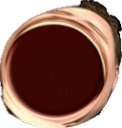12036534
Spanish yr 11 mock key vocab corrections.
Description
Flashcards by Aryan Mohajerani, updated more than 1 year ago
More
Less

|
Created by Aryan Mohajerani
almost 7 years ago
|
|
Resource summary
| Question | Answer |
| Last weekend | El fin de semana pasado This is masculine. |
| Last week | la semana pasada This is feminine |
| To spend (money) | gastar |
| To spend (time) | pasar |
| I liked/ It was pleasing to me | Me gustó |
| He/She liked/ It was pleasing to him/her | Le gustó |
| A lot of problems | Muchos problemas 'Los problemas' is masculine. So 'Mucho' has to agree to the masculine plural. |
| Holidays are important | Las vacaciones son importantes |
| The first day | El primer día el día is masculine. |
| The second day | El segundo día |
| The final day | el último día |
| He/She had to write | tuvo que escribir |
| When I was young I used to watch | Cuando era jóven veía irregular imperfect. |
| It was (imperfect) | era |
| If I had a lot of money, I would buy/go | Si tuviera mucho dinero, compraría/iría very irregular conjugation of tener. |
| It's important that one does. | Es importante que se haga |
| To play football | Jugar al fútbol Don't forget the 'a' and make it flow with 'el' |
| Yes | sí |
| If | si |
| For 3 days | Desde hace tres días |
| During 3 days | durante/por tres días |
| To intend/ to try to | Intentar |
| To try (food, clothes) | probar, pruebo= present singular I form. |
| I played | Jugué |
| I will have | Tendré |
| I would have | Tendría |
| culture | la cultura (noun) |
| cultural | cultural/es (adjective) |
| I intend to keep in shape | Intento mantenerme en forma |
| It is important to keep in shape | Es importante mantnerse en forma |
Want to create your own Flashcards for free with GoConqr? Learn more.
